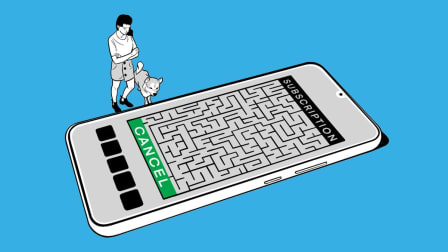How to Manage Your Credit Cards
Many Americans have trouble keeping track of their cards, but fixing the problem is tricky. Here’s what to do.

Quick: How many credit cards do you have but almost never use?
If you’re not sure, you’re one of millions of Americans who has trouble managing credit cards.
Consumers have an average of four credit cards. But about 25 percent of those accounts go unused, according to research (PDF) by the American Bankers Association.
“Many people even forget which cards they own,” says Ted Rossman, senior industry analyst at CreditCards.com.
Do I Own Too Many Credit Cards?
Selecting the right number of cards for your wallet will depend on your individual financial circumstances. Although the average American holds four credit cards, most people can do well with just two or three cards, says Rossman, who holds only two credit cards.
That said, some people can benefit from owning a wide array of credit cards. Road warriors, for example, often become experts in tracking mileage and rewards on various travel cards. Shoppers who frequent particular retailers can save by earnings discounts on various store cards.
Still, if you’re finding it difficult to keep tabs on your cards or rein in your spending, you probably have more accounts than you can manage, says Marguerita Cheng, a certified financial planner in Gaithersburg, Md.
Another point to consider: Having a large number of cards also puts you at greater risk of a security breach and identity theft, which can cause major headaches, Cheng says. (To protect your accounts against hackers, consider placing a fraud alert on your credit profile or freezing your credit and using other privacy fixes.)
When Does It Make Sense to Cancel a Credit Card?
If you’re paying a fee for a card you don’t use or you realize you have too many cards to manage, there’s a case for cutting back. But it’s important to be strategic about closing a card, because that will have a negative impact on your credit score, says Natalie Slagle, a certified financial planner in Rochester, Minn.
Canceling a card will reduce your overall credit limit, which in turn will raise your credit utilization rate (the amount of available credit you use). To maintain a top credit score, your utilization rate should be no more than 30 percent of your total credit.
Also, if you’ve held a card for a long time, eliminating it may shorten your credit history. For credit score purposes, the longer your credit history, the better.
The credit score hit will be temporary, perhaps a few months. But if you’re planning to take out a mortgage or a loan in the near future, better to hold off until you complete the transaction, Slagle says.
What's the Best Way to Monitor My Credit Cards?
It’s easier than ever to stay on top of your accounts by using the tools available through your bank’s website or its app, including signing up for alerts and notifications.
If you’re concerned about staying below certain credit limits, you can set up balance notifications, which will tell you when your balance exceeds or falls below a certain amount. You can also enable spending notifications that can alert you to major purchases. Payment-due alerts will tell you a few days in advance about approaching deadlines.
Another smart move is to enable auto-pay for your bills. You can choose whether to pay in full each month (make sure you have enough in your account to cover the amount) or make a partial or minimum payment.
Even if you’ve set up full auto-pay, be sure to examine your statements to spot any billing errors or fraudulent charges, Rossman says.
Should I Apply for a New Card to Get a Sign-Up Bonus?
You may be tempted by new credit card sign-up bonuses recently offered by some banks. For example, Chase’s Sapphire Preferred credit card recently offered 100,000 sign-up points to eligible cardholders, and the Wells Fargo Active Cash offered a $200 sign-up bonus, plus other benefits.
But it’s important to dig into the details before you apply. “You need to understand how you can qualify for those bonuses, since it often involves spending thousands of dollars within a certain time,” says Matt Schulz, chief credit analyst at LendingTree.
And as noted earlier, you should think twice before applying for any new credit if you’re planning to take out a loan or mortgage to avoid an untimely hit to your credit score.
Can I Avoid Having My Credit Card Closed or Canceled?
It’s impossible to completely prevent a credit card from being closed, because doing so is within the rights of the issuer. But you can reduce the odds by making sure you use it regularly, even for small purchases, such as monthly fees for a streaming service.
If your card is closed, it’s worth making an appeal to the card issuer. But you’ll need to give the bank a reason to reconsider, Schulz says, such as a raise in income.
Another option may be to ask the issuer of another card to raise your credit limit, which could help offset the loss of credit from the closed card, Slagle says.
But before you put in a request to reopen a card or raise your limit, ask the bank’s customer rep whether the request will count as a soft inquiry rather than a hard inquiry, which could have a negative impact on your credit score.
A request is more likely to be rated a hard inquiry if you’re seeking to reopen a card, Rossman says. If that’s the case, you may want to shop around for a new credit card when you’re ready to ride out a dip in your credit score.




